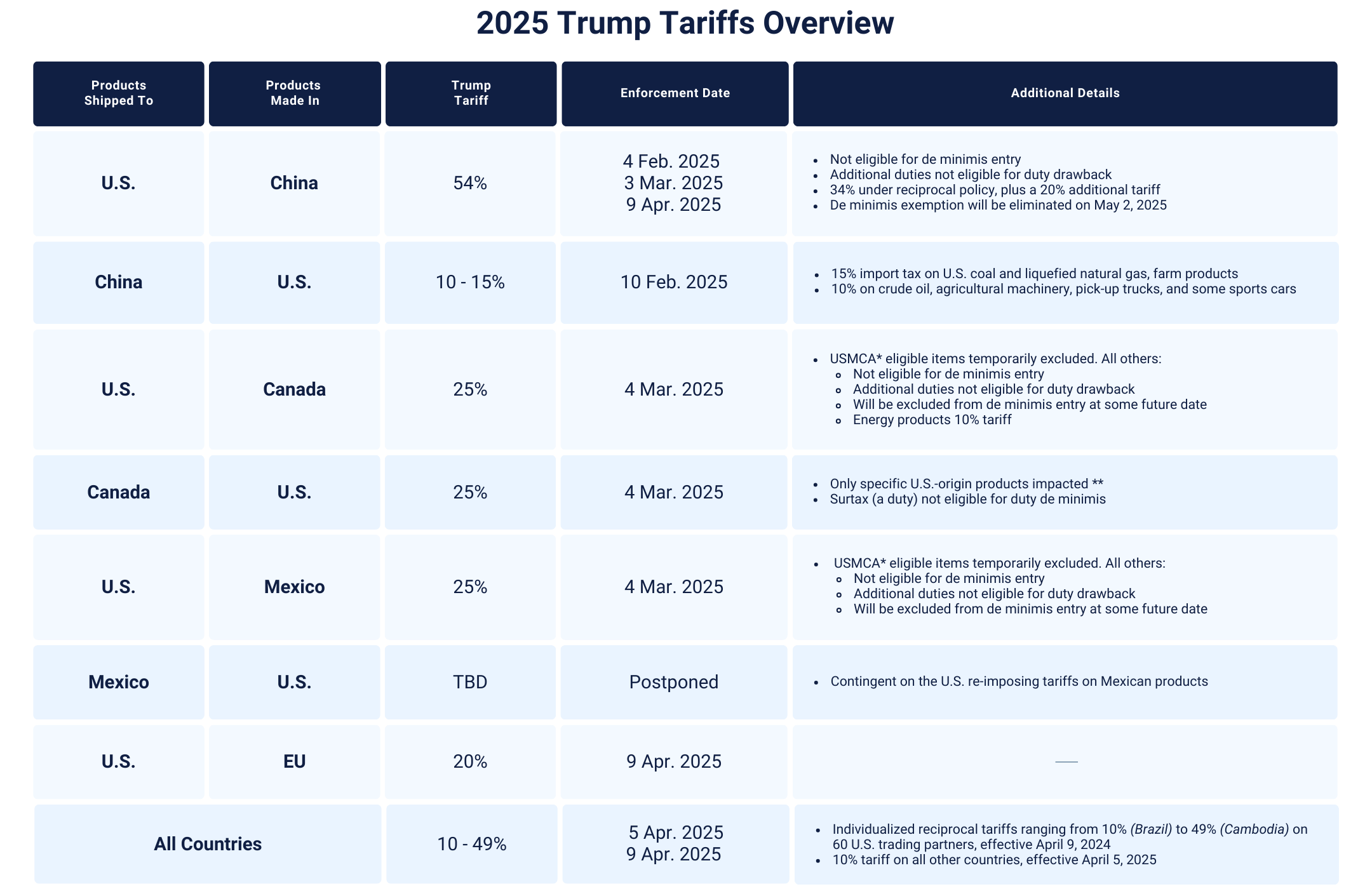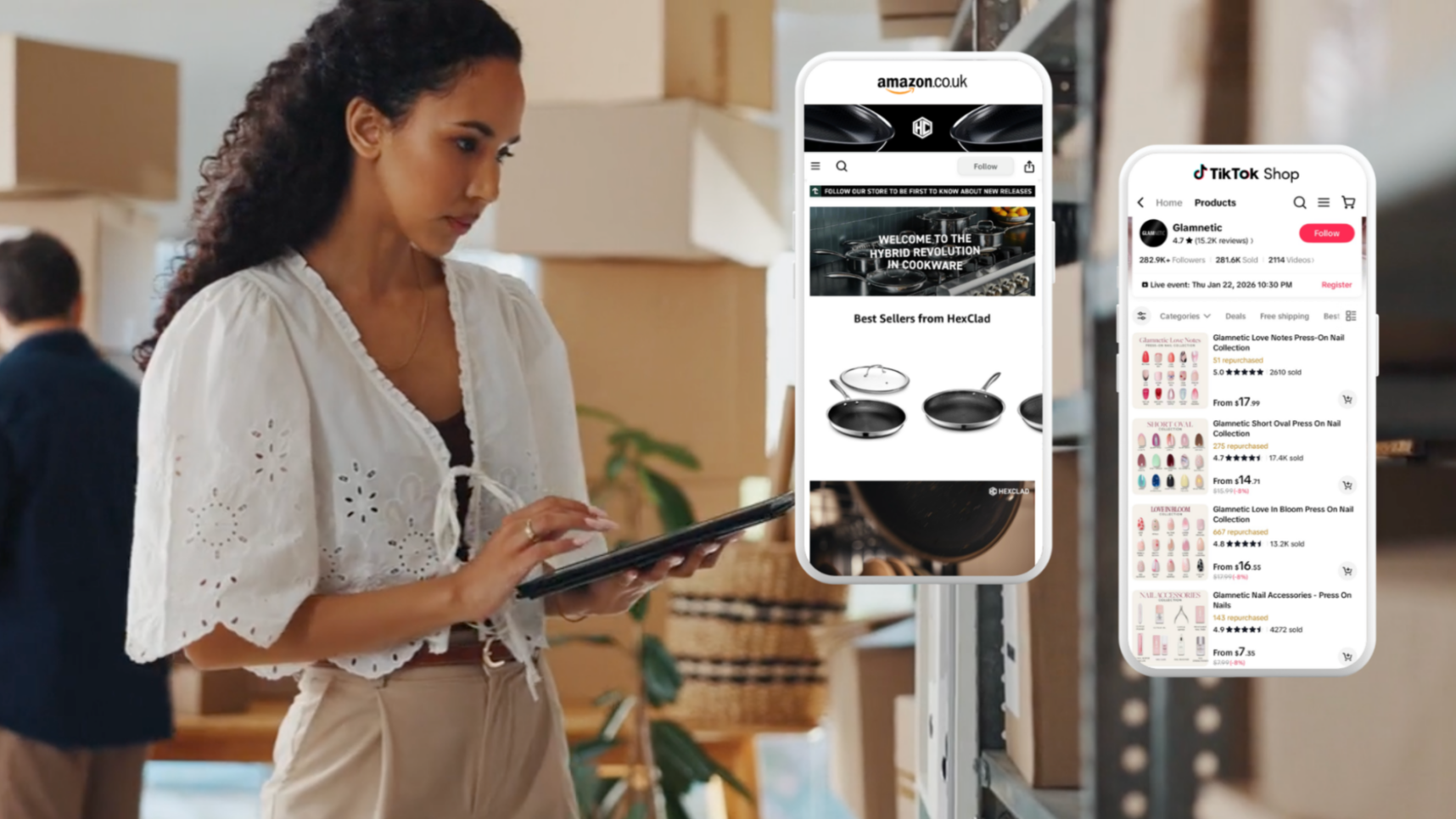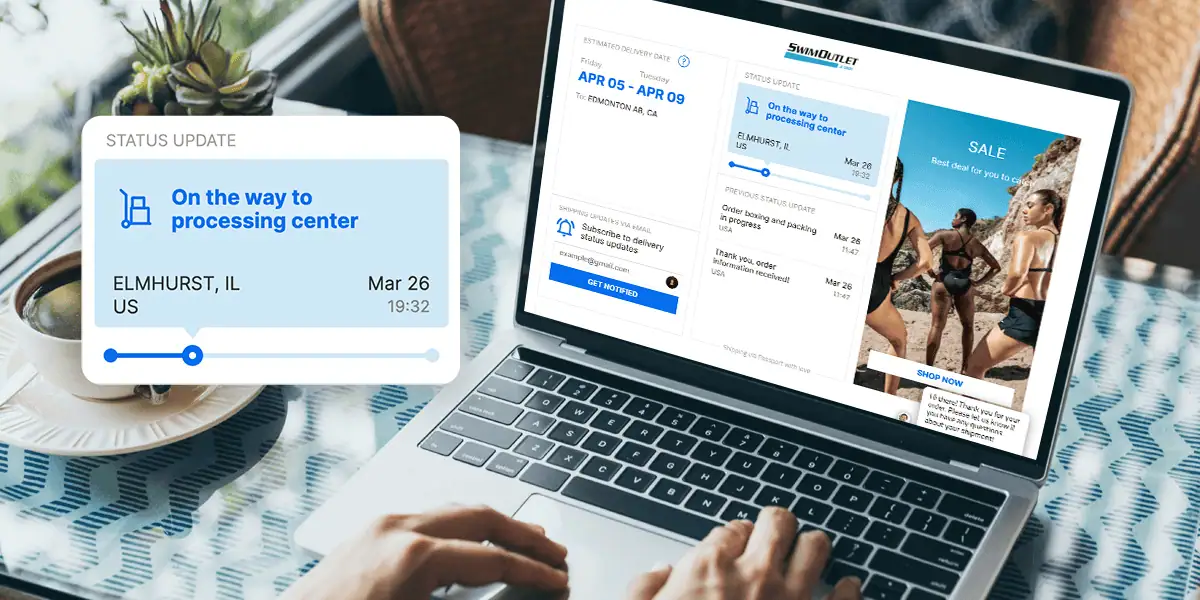The Trump administration announced sweeping changes to U.S. tariff policy on April 2, 2025, impacting ecommerce brands around the world. Perhaps most notably, the duty-free de minimis shipping exemption will be eliminated for all countries once the government’s systems are ready tohandle the change.
For China and Hong Kong, however, the timeline is already set — de minimis will officially end on May 2, 2025. This comes as a shock to many brands that have relied on the $800 exemption threshold as a key cost-saving measure.
So, what does this all mean for you? It’s time to rethink your approach to cross-border logistics, compliance, and pricing. Here’s how to proactively adjust to stay competitive.
🎙️ Want expert insight on what these changes mean for your brand?
Watch our Trump Tariff Talk webinar on-demand to hear directly from Global Trade leaders Thomas Taggart and Agustin Farias. They break down the April 2025 policy shifts, including the end of de minimis, and share actionable strategies for ecommerce brands navigating this new landscape. Watch the webinar replay here
What Are Tariffs and De Minimis
What Are Tariffs?
Tariffs are taxes or duties imposed by a government on imported goods. They are used to generate revenue or protect domestic industries from foreign competition. Tariffs can be assessed as a percentage of the product’s value (ad valorem tariffs) or as a specific amount per unit (specific tariffs).
What Is De Minimis?
The De Minimis Exemption is a law passed by Congress that allows shipments bound for American businesses and consumers valued under $800 (per person, per day) to enter the U.S. free of duties and fees. This threshold has been a major advantage for ecommerce brands shipping low-value goods into the U.S. without incurring additional duties and fees.
What’s Happening with De Minimis?
A notable shift in the latest executive order: While earlier orders issued on February 1 initially excluded goods from China, Hong Kong, Canada, and Mexico from de minimis eligibility, a February 5 amendment temporarily allowed de minimis entry to continue until adequate systems are in place to fully and expediently collect tariff revenue.
However, this latest order marks the first official indication that the de minimis exemption will be eliminated for all countries, not just those previously named. The broader scope of this change has caught many in the industry by surprise and is already making waves across the logistics and ecommerce space.
Under the new rules:
- Effective April 5, 2025: All goods imported into the U.S. will be subject to an additional 10% tariff unless individualized tariffs apply.
- Effective April 9, 2025: 60 U.S. trading partners will face individualized reciprocal tariffs ranging from 10% to custom rates.
- China & Hong Kong: A 34% reciprocal tariff will be enforced starting April 9, 2025. De minimis exemptions end May 2, 2025. Postal shipments will see tariffs of 30% or $25 per item, increasing to 30% or $50 per item on June 1, 2025.

For a full breakdown of all the latest updates, view our U.S. Tariff Rates by Country list.
The impact of these changes is far-reaching. Brands that relied on low-value shipments to enter the U.S. duty-free will face new challenges. The ripple effects are expected to disrupt air freight volumes, fulfillment centers in Mexico and Canada, and the broader logistics landscape.
What to Do Next: 6 Practical Steps for Brands
Navigating these changes doesn’t have to be overwhelming. Here’s how you can proactively adjust:
1. Adjust Your Pricing
- Include additional duty rates in your product prices, either embedded on the product page or broken out at checkout.
- With Passport Global, we can help you optimize your storefront, localizing pricing and duty/tax calculations to stay competitive.
2. Consolidate Orders
- Use formal entries (Type 01) and single entry manifests to lower brokerage costs. By consolidating multiple orders into fewer formal entries, you can significantly reduce your overall import costs.
3. Review Your Import Strategy
- Evaluate using earlier (first) sale valuation for imports, which could reduce your duty liability.
- Ensure compliance with requirements for bona fide sales, export designation, and documentation.
- Passport provides expert product, fiscal, and trade compliance support to help you navigate these complexities.
4. Shift to In-Country Fulfillment
- Reduce tariff impacts by moving unsold inventory locally within key markets.
- With Passport Global’s in-country fulfillment solutions available in the US, UK, and Canada, you can improve conversion rates and minimize tariff costs.
5. Optimize Country of Origin & HTS Classifications
- Review your sourcing countries and product designs to minimize tariffs. Adjust your supply chain to take advantage of preferential trade agreements where applicable.
- Passport can help you properly classify your goods, ensuring compliance and maximizing savings.
6. File for Duty Drawback on Exports
- Explore direct identification (J1) or substitution (J2) methods to recover paid duties when goods are exported.
- This requires “CBP privileges” approval, and Passport can guide you through the process.
Impact and Recommendations for UK, Canada, and EU-Based Companies
For companies outside the U.S., the new policies will have varying impacts:
- UK & EU Brands: U.S. tariffs do not apply to goods shipped directly into the UK or EU. Brands shipping inventory to the EU and localizing their operations can avoid hefty U.S. tariffs and gain more attractive unit economics. Nest Commerce highlights that European import duties are significantly lower and Meta CPMs run at a third of the cost compared to the U.S., providing better ROI for marketing efforts.
- Canada & Mexico: The 25% tariff waiver remains if goods are USMCA-eligible. Non-qualifying goods will face a 12% tariff. Fulfillment centers in Mexico and Canada may face increased scrutiny as U.S. customs tightens enforcement around de minimis entries.
- China: The de minimis program will be eliminated entirely for China by May 2, 2025. Goods of any value will be subject to duties and customs entry. Postal shipments will be taxed at either 30% of their value or $25 per item, increasing to $50 per item on June 1, 2025.
Ready to Adapt? Passport Can Help
At Passport, we’re dedicated to helping you navigate these complex compliance changes with confidence. Whether you need to optimize your pricing strategy, consolidate orders, or localize your fulfillment operations, we have the tools and expertise to support your growth.
Explore our full suite of services or book a demo with our team to discuss your options.
And for the latest insights and updates, visit TrumpTradeTracker.com and stay connected with Passport on LinkedIn.
Authored by Thomas Taggart
Head of Global Trade | Passport
Thomas Taggart is a cross-border commerce leader with more than 20 years of experience in international shipping and regulatory affairs. As the Head of Global Trade, Thomas helps ecommerce brands go global by simplifying international trade, tax, and product compliance issues. Prior to Passport, he brought international shipping solutions to market through multiple roles in UPS’s product development organization.
Expert Insights from Alex Yancher
CEO & Co-Founder | Passport
Alex Yancher is an accomplished entrepreneur and business leader, currently serving as the Co-Founder and CEO of Passport. Prior to founding Passport, Alex held key positions such as Chief Operating Officer at Pantry, where he revolutionized fresh food retail. Alex has also held finance roles at companies like Facebook and Morgan Stanley. He also actively advises and invests in startups, offering strategic guidance and support.
Expert Insights from Agustin Farias
Trade & Tariff Strategy Lead | Passport
Agustin Farias is a global ecommerce and supply chain leader with over 20 years of experience in retail operations, logistics, and cross-border trade. As a strategic advisor to Passport’s Global Trade team, Agustin supports key initiatives to help brands navigate shifting tariffs, trade regulations, and compliance challenges. Prior to Passport, he led technology-enabled supply chain and ecommerce operations at both startups and Fortune 500 companies across the US, Southeast Asia, and Latin America.














